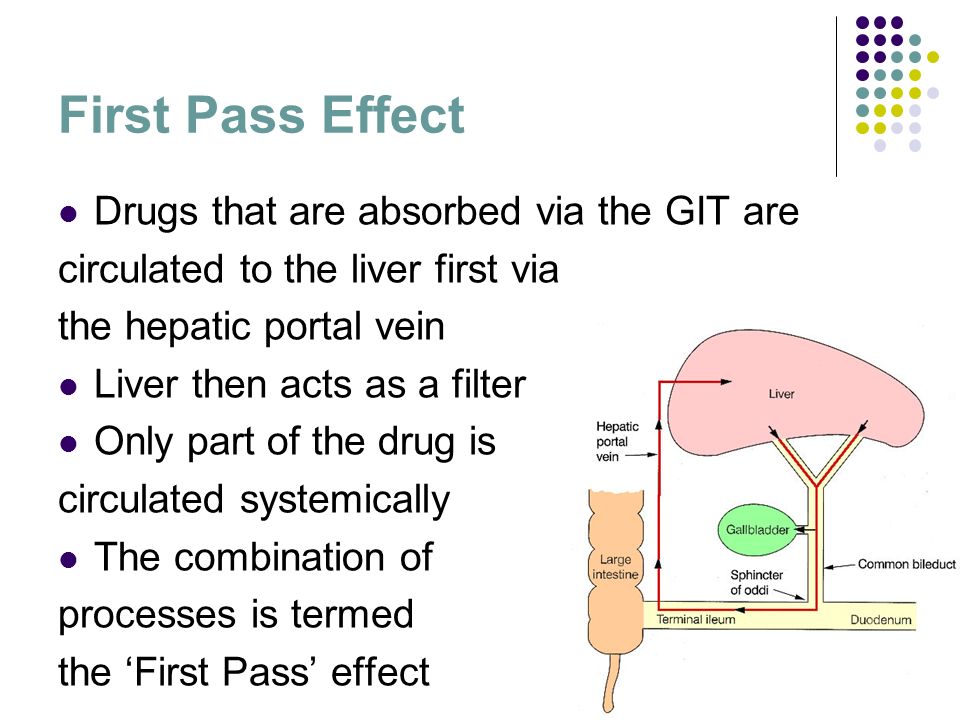What is meant by the First-Pass Effect of drugs?
1 Answer
After oral administration, many drugs (morphine, pentazocine) are absorbed intact from the small intestine and trasported first via the portal system to the liver, where they undergo extensive metabolism. This process is called the first-pass effect.
Explanation:
Although every tissue has some ability to metabolize drugs, the liver is the principal organ of drug metabolism. Some other tissues show considerable activity, for example the gastrointestinal tract, the lungs, the skin, the kidneys and the brain.
first-pass effect is a process in which a drug administered by mouth is absorbed from the gastrointestinal tract and transported via the portal vein to the liver, where it is metabolized. As a result, in cases of some drugs, only a small proportion of the active drug reaches the systemic circulation and its intended target tissue.

In cases of those drugs, which has high first-pass effect, oral administration is avoided, to get the desired effect. For example lidocaine is administered locally or IV and morphine is administered intravenously (IV). First-pass effect can be also be bypassed by administering the drug via sublingual or buccal routes.

